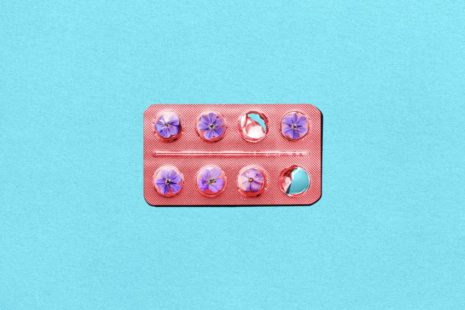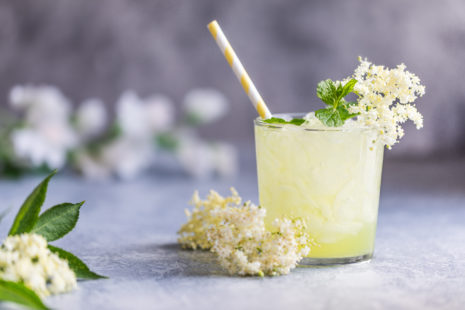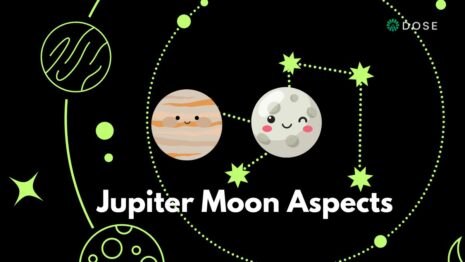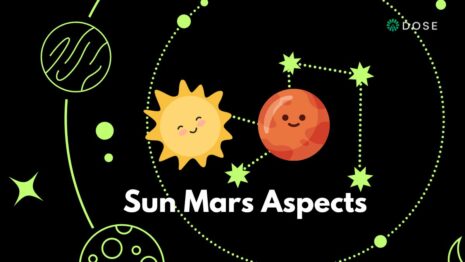Do you find yourself falling asleep at the desk as you struggle to focus on your work? Do you often feel hangry throughout the day, or as though you’re riding an emotional rollercoaster? Don’t worry. It’s not you, it’s probably your diet. Our mood, energy levels and mental clarity are all directly connected to our food. As the saying goes, you are what you eat! In this article Harley Street’s DNA dietitian Rachel Clarkson reveals her scientifically proven ways to boost your mood with food, curb cravings and munch your way to happiness…
How To Boost Your Mood With Food
Why is gut health important?
Serotonin is the key hormone that regulates our mood and impacts our feelings of wellbeing and happiness. Depression, anxiety and mood disorders are often linked to low levels of serotonin.
You may be wondering how has this got anything to do with our gut? Well 95% of our serotonin is produced here. Often labelled as the second brain, our gut contains the second largest network of nerves and neurotransmitters in our body. These nerves communicate back and forth with our brain via the gut-brain axis. Therefore a happy gut is essential for a happy mind.

How to improve your gut health?
Having a diverse diet is key for keeping your gut microbiome well fed and healthy. Boost your mood with food by eating these gut loving nutrients…
Fibre: Feed your gut with whole grains, legumes, nuts, seeds, fruit and vegetables that all contain prebiotic fibre. Aim for 30g a day.
Polyphenols: Our gut bacteria can’t get enough of these powerful plant chemicals! Try sourcing them from olive oil, coffee, green tea and red wine (in moderation) to aid digestion.
Healthy fats: Encourage good bacteria in the gut to grow with healthy fats found in oily fish, nuts and avocados.
Fermented foods: The 3 K’s: kefir, kombucha and kimchi, are cracking ways to show your gut some love and provide it with the all important probiotics.
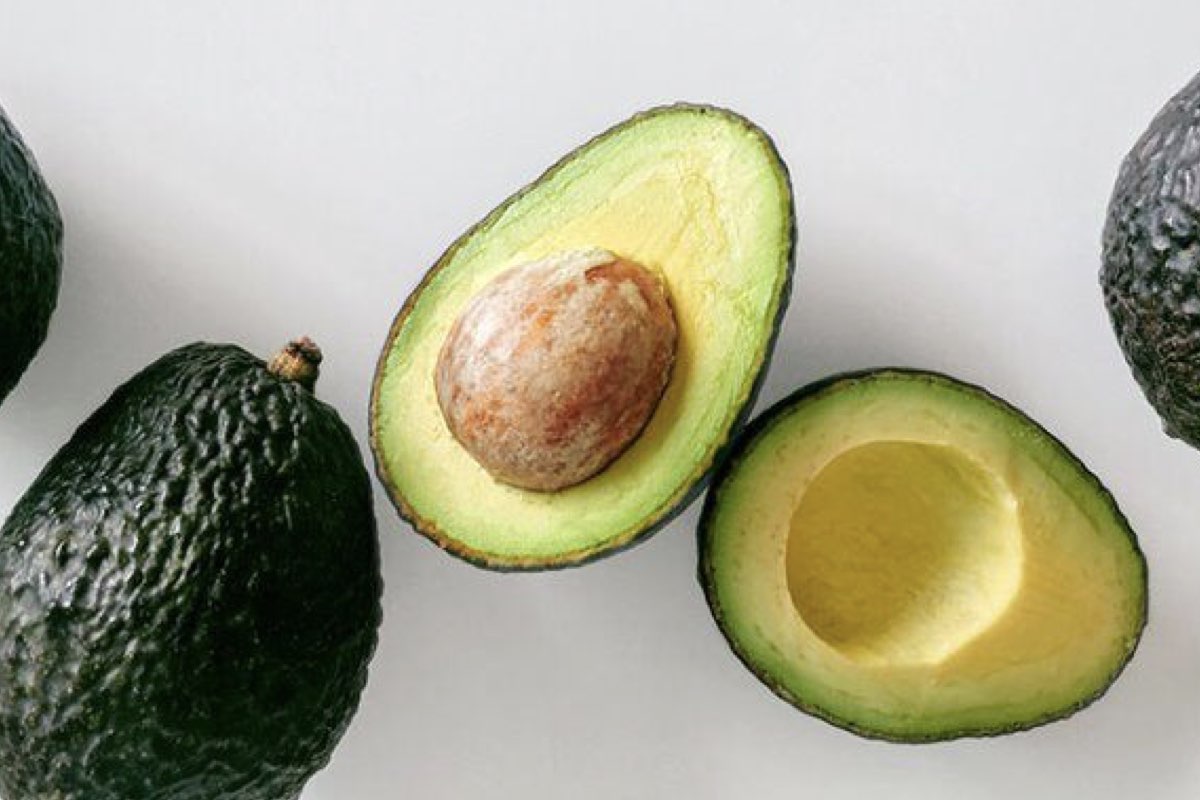
Eating for energy
Next time you’re about to reach for that bag of sweets for an energy boost, think again. Rachel explains “when someone consumes a fibre free, simple sugar carbohydrate in order to fuel themselves it will initially spike their energy levels giving them that sugar rush. However, as soon as our body brings this spike in sugar levels down by producing insulin, we suddenly have a slump in our mood”. When we eat wholegrain carbohydrates we are able to function more efficiently as our brain isn’t having to think about balancing out our blood sugar levels. High fibre foods leave us energised as glucose is released at a slower pace.
Try these food swaps…
White bread/rice for brown bread, rice, quinoa or bulgar wheat
High sugar cereal for high fibre cereal
Fruit juices for fibre filled smoothies
Crisps for nuts, fruit or a fibre snack bar
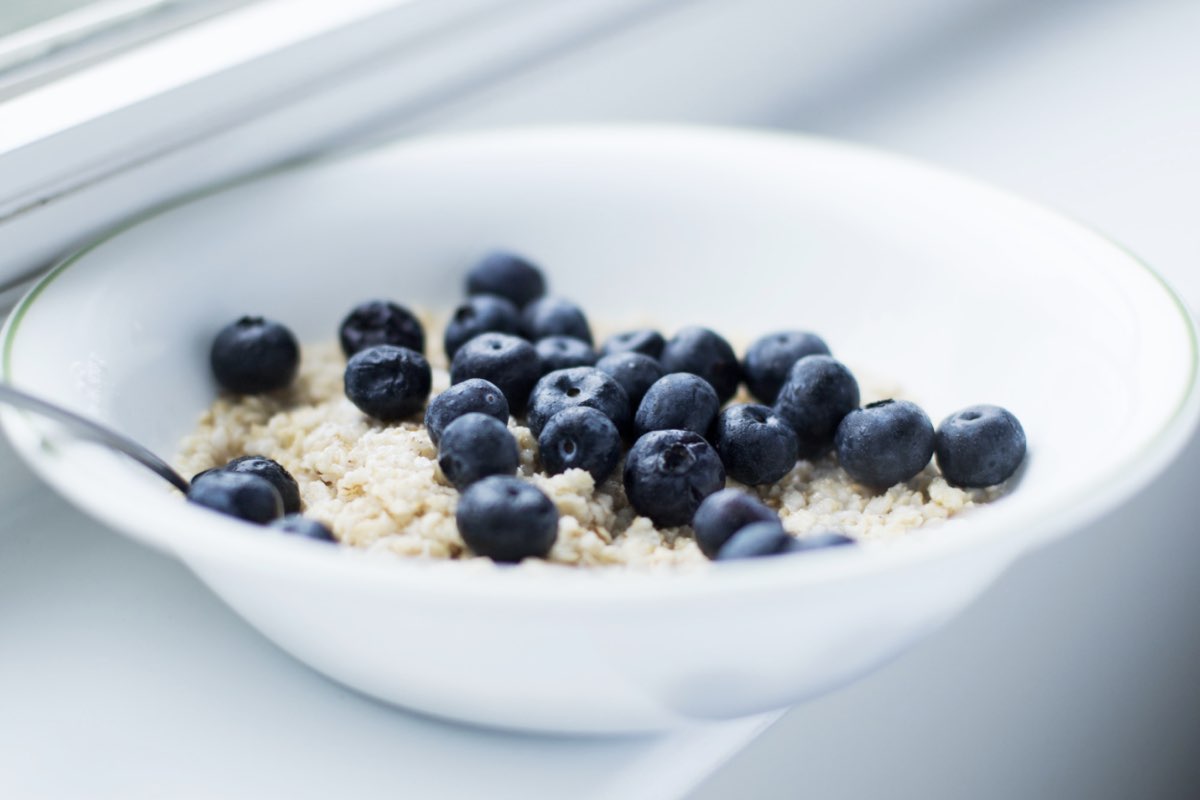
Healthy snack ideas for work
Rachel shares her favourite snack ideas that contain the essential combination of carbohydrates, protein and fat in order to sustain her blood sugar levels throughout the day, and keep her feeling satisfied.
“If I’m at home, I love to make a smoothie or eat a bowl of low fat greek yoghurt with berries. When I’m on the go however, these aren’t practical to keep in my bag, so I usually opt for a high fibre, high protein, low carb bar, or if I have a sweet tooth I’ll have some popcorn or high quality dark chocolate chips. I’m also a sucker for veggies and homemade crudité!”.
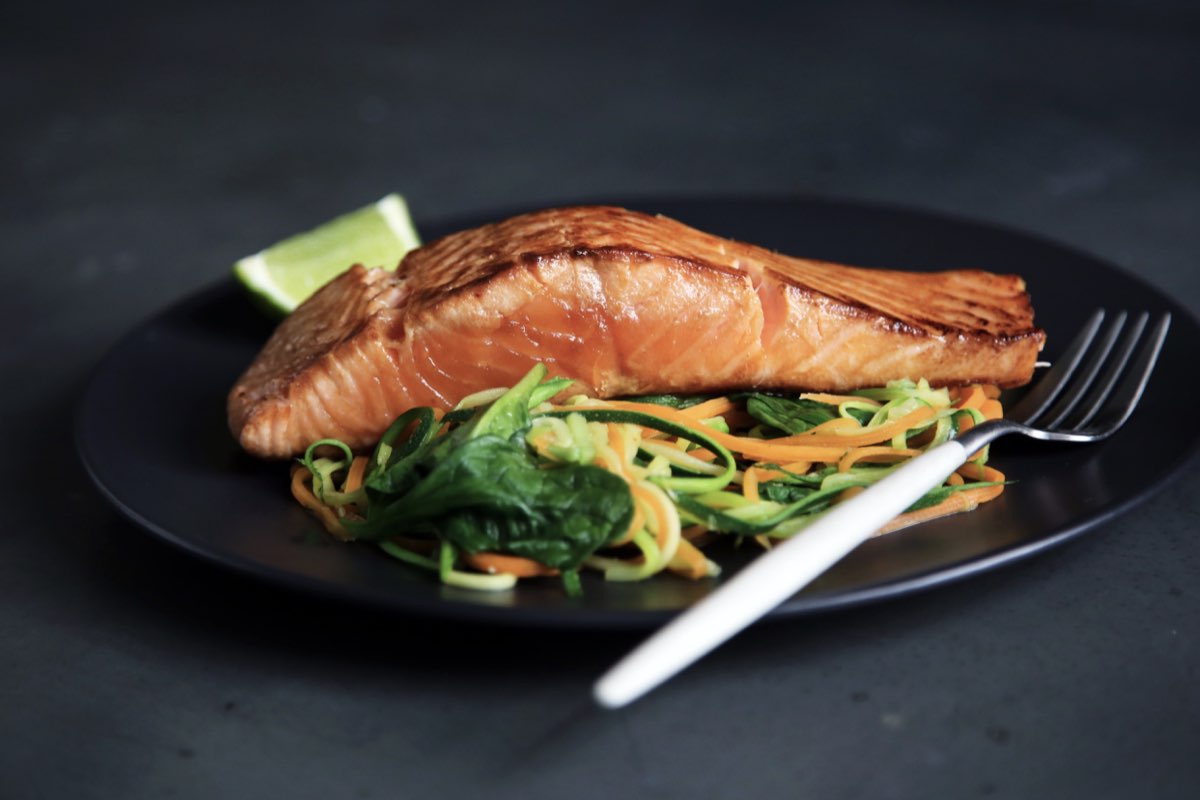
Brain Boosting foods
Research has shown that long term changes to your dietary pattern can change the size of our hippocampus – a complex brain structure embedded deep into the temporal lobe, with a major role in learning and memory. Eating a Mediterranean based diet filled with predominantly whole foods can increase the hippocampus diameter leading to better brain power.
Rachel also stresses the importance of Omega 3 on our brain health. “In the Westernised diet we often miss out on the key fatty acids essential for boosting our brain. Make sure to try and regularly incorporate oily fish such as salmon, mackerel, sardines or trout into your diet. If you’re plant based, try topping meals with chia seeds and flaxseeds so you don’t miss out on vital fats”.
Boost your mood with food:
By eating more of these specific nutrients in our diet we can increase the neurotransmitters such a serotonin, dopamine and acetylcholine to improve mood, memory and learning…
Foods that contain tryptophan:
When talking about how to boost your mood with food, it’s impossible not to mention the nutrient tryptophan. The amino acid is found in proteins such as milk, tofu, cheese, fish, meat, eggs, nuts and seeds. It is essential for the production of our happy hormone serotonin. Studies have shown that individuals with a low tryptophan containing diet suffer from depression, so it is crucial to include a substantial protein source at every meal.
We can increase serotonin production even further if tryptophan proteins are combined with carbohydrates, though try to be conscious in your choice of carbs. Rachel explains how “when you’re feeling low and craving sugar it’s because your body wants more carbohydrates to combine with tryptophan in order to produce more serotonin to increase your mood”.
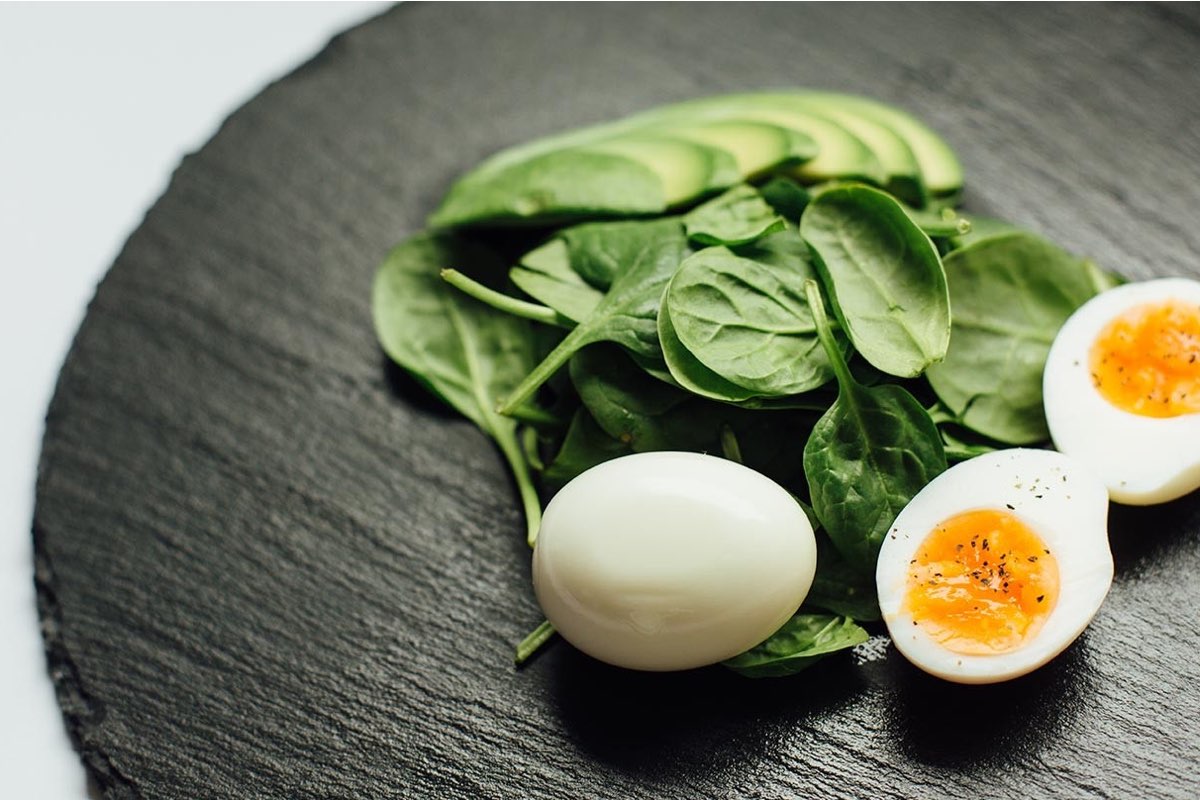
Choline rich foods:
Choline is key to acetylcholine production, which improves memory and mood. The nutrient is relatively new to the world of nutritional science and every individual metabolises it differently depending on their DNA.
Dietary guidelines recommend that a male requires 550mg of choline daily and women 425mg, targets that are commonly not met. In order to increase levels of choline Rachel recommends incorporating more eggs, beans, tofu, meat, fish and wheatgerm into your diet.
How many meals should you eat a day?
The perfect day of eating doesn’t exist. As Rachel states, “It’s whatever works best for you and your schedule, whether that be the traditional 3 times a day or 6 smaller meals every other hour, as long as your dietary pattern enables you to maximise your daily routine”.
Should I weigh my food?
Rachel explains how using the scales to weigh out food, is a very toxic mindset. “Food is meant to be pleasurable and enjoyable. It shouldn’t be looked at as simply fuel”. Instead of weighing your food, try using your hand as a guideline: one hand of carbohydrates, the size and thickness of your palm for your protein source and two handfuls worth of vegetables at each meal. It is vital to remember that this is just a general guideline though and every individual’s needs are unique depending on their activity level.
Health benefits of intermittent fasting
Periods of intermittent fasting can be very beneficial for your body. During a fast, our bodies switch into recycling mode and cells are regenerated.
However, Rachel stresses that IF should never be used as a weight loss tool. Due to the reduced eating window you are more likely to consume less calories, often resulting in weight reduction. As soon as you stop fasting though the weight piles back on, therefore this isn’t a sustainable method if you know that fasting isn’t something you could maintain forever.
Instead fasting should be introduced once you are at your ideal weight to help with clinical biomarkers for overall health.

Which vitamins should I take?
Rachel recommends taking a vitamin D supplement every day, but is cautious around other supplements the market has to offer. “Unlike the pharmaceutical industry, when you buy supplements you’re dabbling in an unregulated market, so you have to be extra conscious of what you’re putting into your body”. Indeed taking too many supplements with the goal to help your health may backfire and only hinder it. If we eat a varied and balanced diet there should be no need to take them as we can get all of the nutrients from the food that we consume. “They have a place in our diets but please be careful. Always consult with your GP or dietitian first”.
Gluten and dairy free diets
Are you avoiding gluten and dairy because you’re intolerant or because it’s in style?
If you have celiac disease, avoiding gluten is recommended. However, if you’re avoiding gluten just for the sake of it, it’s important to keep an eye out for the fat and sugar content in gluten free products that are added to make them taste good. Instead, try and choose whole foods that are naturally gluten free.
Dairy is one of the most nutrient dense foods available to us. While consuming less dairy is good for the planet, Rachel recommends keeping it in your diet just in smaller doses. “Often when individuals cut out dairy completely, they come into my clinic with thyroid and weight issues”. If you really can’t bring yourself to drink cow’s milk however, make sure you’re buying fortified versions of plant milk in order to get all of the essential key vitamins and nutrients.
Is too much soy bad for you?
There have been rumours circling the wellness industry that due to soy’s oestrogen content it could increase the risk of oestrogen predominant cancers and even cause breast growth in males. Rachel reassures us that this is simply scaremongering. In fact, populations that consume the most soy actually have lower rates of breast cancer.
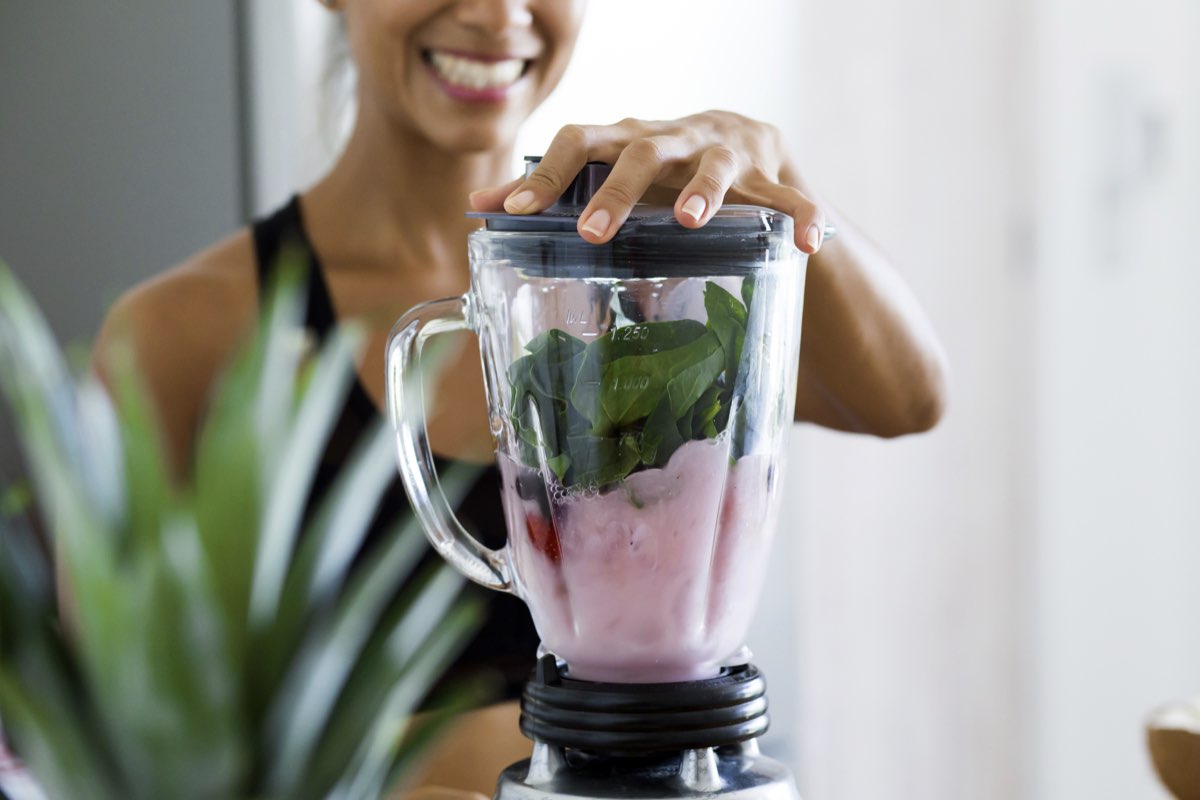
Smoothie vs juice – which is better?
Whether you’re team juice or team smoothie, they’re both great ways to get extra vitamins into your diet throughout the day. However, juicing essentially removes all fibrous materials leaving only the liquid of the fruits and vegetables behind. These can be quickly absorbed into the blood stream leading to increased changes in glucose and insulin levels. A smoothie on the other hand holds on to all of the goodness in the fibre, aiding digestion, stabilising blood sugar levels and leaving you fuller for longer. #Teamsmoothie all the way!
Quick fix foods to boost your mood if you’re feeling…
Weak and fatigued: Your body is craving iron. Relish a plate of red mead, snack on some spinach or devour some high quality dark chocolate. You can enhance your body’s absorption by combining a vitamin C source with these high-iron foods. This is especially important if you are plant based.
Depressed and irritable: Your body is craving B vitamins. Load up on leafy greens, salmon, cheese and eggs.
Negative: Your body is craving selenium. Nibble on some Brazil nuts.
Liked this article on ‘How to boost your mood with food according to the DNA dietitian?’ Why not try out some gut loving recipes?
By guest contributor Helena Holdsworth
Get your weekly DOSE fix here: SIGN UP FOR OUR NEWSLETTER

